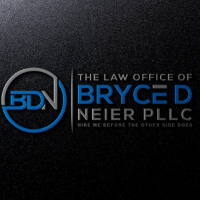West End Juvenile Law Lawyer, North Carolina
Not enough matches for West End Juvenile Law lawyer.
Below are all West End Criminal lawyers.
Bryce D. Neier
✓ VERIFIEDDivorce & Family Law, Criminal, Lawsuit & Dispute, Entertainment, Ethics
Confident and Competent Representation.
The Law Office of Bryce D. Neier is based in Fayetteville, North Carolina and I handle a wide range of civil matters. However, the focus of my practic... (more)
Andrew R. Dempster
✓ VERIFIEDCar Accident, Motorcycle Accident, Criminal, Wrongful Death, Workers' Compensation
Andrew R. Dempster Jr. "Drew" is a second generation attorney. Drew grew up in Fayetteville, North Carolina where he graduated from Pine Forest High S... (more)
FREE CONSULTATION
CONTACTApril Howard Phillips
Criminal, Family Law, Personal Injury, Workers' Compensation
Status: In Good Standing
FREE CONSULTATION
CONTACTL. Stacy Weaver
Alimony & Spousal Support, Bad Faith Insurance, Civil Rights, Criminal
Status: In Good Standing
FREE CONSULTATION
CONTACT



